Mar 31, 2025
Connected Speech Practice
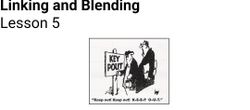
In English some syllables are stressed and some are unstressed.
UNSTRESSED syllables are fast, quieter, and often have reduced vowels.
The reduced vowel sometimes used in unstressed syllables is called Schwa. It sounds like /'/, /uh/, or /i/ as in sit.
For example: the word to is always unstressed. It sounds like t'.
Today
Tomorrow
To live
To stay
I'm starting to think.
I go to work.
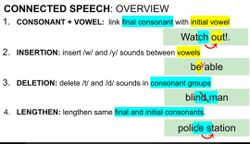

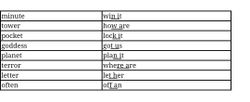

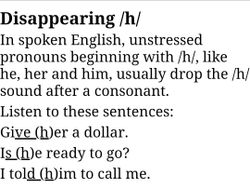
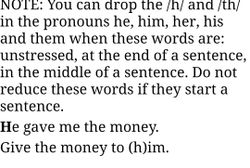
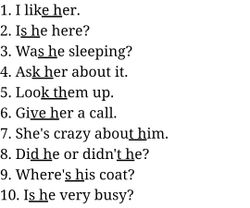
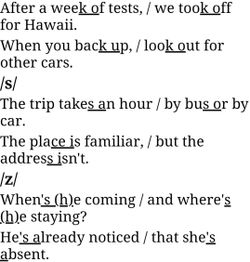
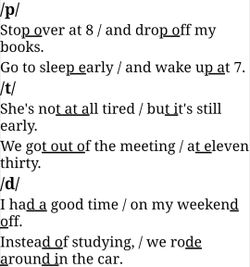
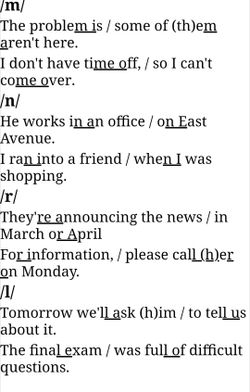
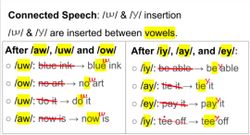
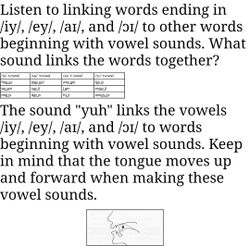

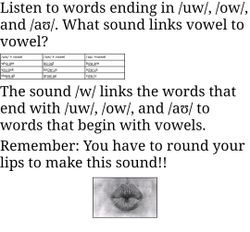

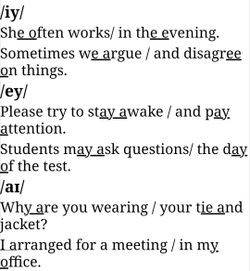
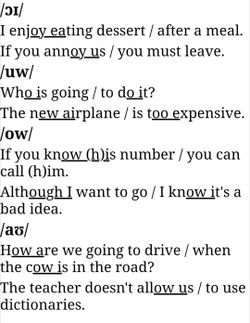
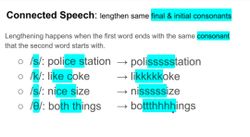
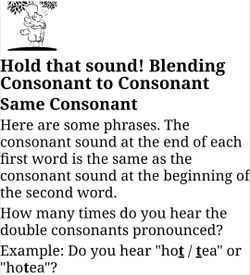
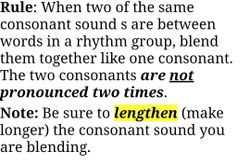
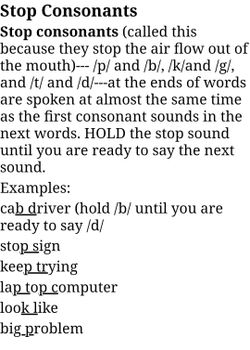


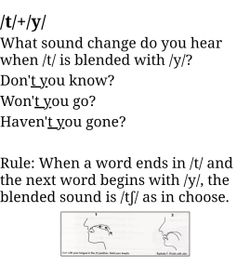

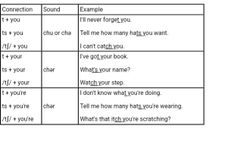
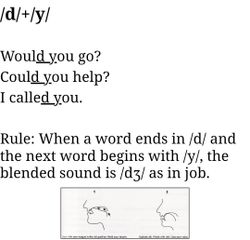
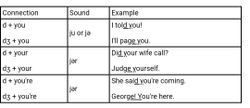

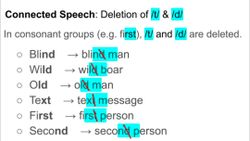
"t"-vowel (stop t)
When a word or syllable ENDS with a "t" sound and the next word or syllable begins with a CONSONANT, the "t" is often pronounced as a stop T ( ' ).
Examples: "
hot dog
ho' dog (make the /ah/ vowel and then stop)
about time
abou' time (stop on the /oo/)
late fee
la' fee (stop on the /ee/)
meet me
mee' me
goat milk
goa' milk (stop on the /oo/)
right turn
ri' turn (stop on the /ee/)
boat ride
boa' ride
heartbeat
hear' beat
part-time
par'-time
Whitehouse
Whi' house (stop on the /ee/)
nightlight
ni' light (stop on the /ee/)
consonant /t,d/ consonant
Between words:
I went outside
I wen outside
I want to take a walk
I wanna take a walk
I'm wearing a red dress I'm wearing a redress"
"I live in the East Village" (the /t/ is often omitted)
"Can you come to the West Side?" (the /t/ is often omitted)
"Will you hold my bag?" (the /d/ is often omitted)
"I'm a first generation immigrant" (the /t/ is often omitted)
"Visit the white sand beaches" (the /d/ is often omitted)
Note: This process is more common in informal or fast speech, and the extent to which it occurs can vary depending on dialect and individual speaking style.
last Sunday -->
las Sunday".
best man -->
bes man
world class -->
worl class
first generation-->
firs generation"
East Village -->
Eas Village"
In American English, a "stop T" (or glottal stop) occurs when a T sound is at the end of a word or syllable and the following word starts with a consonant, creating a brief pause instead of a full release of air.
It's similar to the sound you make when you're interrupted.
If someone walks into the room and you suddenly stop speaking in the middle of the sound.
Examples:
Words: "wait," "that," "cat," "got," "fit".
Phrases: "not now," "it's cold," "that's it".
Note:
The stop T is a common feature of American English pronunciation, and it's not necessarily a "mistake" or something to avoid.
It's a natural way to link words and syllables together in a flowing manner.
Some people find it difficult to hear or distinguish the stop T, but it's a common sound in American English.
About
○ Did you hear the latest news report about the accident?
Cat
○ We got Sophie a pet cat.
Bought
○ Andrew bought pizza for everyone.
Shut
○ Shut the door every time you go out, please.
Quit
○ I quit my subscription last month.
Setback
○ We’ve encountered a setback at these locations.
Fitness
○ They’re doing weight training as part of their fitness regimen.
Football
○ Let’s get tickets for the football game this weekend!
Notebook
○ She always has a notebook in her bag.
Footprint
○ We’re trying to figure out where the footprints came from.
When "t" comes before 'n.
Examples:
Bitten
○ He’s scared of getting bitten by stray dogs.
Gotten
○ You’ve gotten better at singing!
Important
○ It’s important that we finish this before the deadline.
Consultant
○ She wants to change careers and be a consultant instead.
Button
○ This shirt has a missing button.
By undefined
40 notes ・ 12 views
English
Beginner